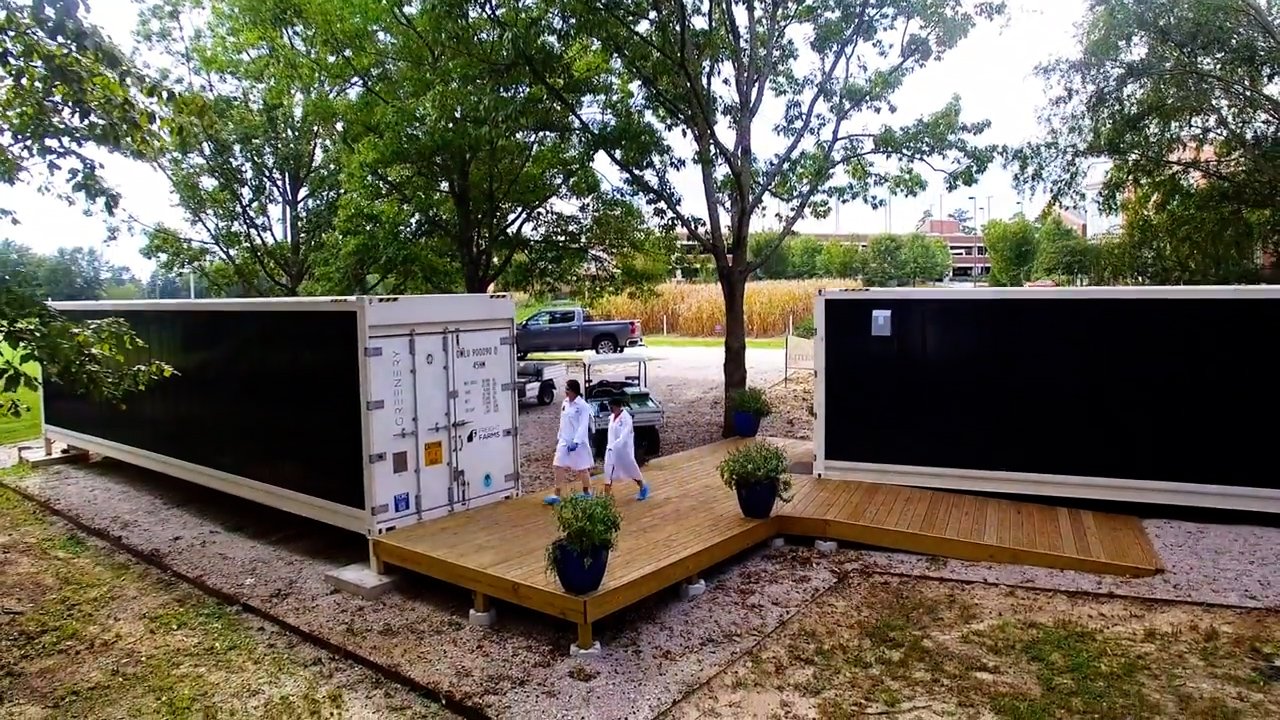Integrating Campus Farms Into Life Cycle Curriculum For Students

Table of Contents
Educational Benefits of Campus Farms in a Life Cycle Curriculum
Campus farms provide unparalleled experiential learning opportunities, transforming theoretical knowledge into practical skills and fostering a profound understanding of sustainable agriculture.
Enhanced Understanding of Food Systems
Hands-on experience on a campus farm offers students an in-depth understanding of the entire food system, from seed to table. Students actively participate in each stage, gaining a holistic perspective often missing in traditional classroom settings. This immersive learning experience fosters a deeper appreciation for the complex interplay of factors influencing our food supply.
- Seed selection: Students learn about different seed varieties, their characteristics, and the impact of seed saving on biodiversity.
- Planting and cultivation: Students gain practical experience in soil preparation, planting techniques, and crop management.
- Harvesting and processing: Students learn about different harvesting methods, post-harvest handling, and processing techniques, such as preserving and storing food.
- Distribution and consumption: Students can participate in distributing harvested produce to campus dining halls or local communities, gaining insights into food distribution networks.
- Waste management: Students learn about composting, reducing food waste, and implementing sustainable waste management practices on the farm.
This comprehensive approach to food systems education promotes critical thinking about food security, agroecology, and the interconnectedness of sustainable food systems.
Developing Practical Skills
Campus farms provide a unique environment for developing essential practical skills directly applicable to various fields. These skills extend beyond basic gardening, encompassing broader agricultural techniques and environmental stewardship.
- Gardening techniques: Students learn about soil health, planting methods, irrigation, pest and disease management, and organic farming practices.
- Composting and waste reduction: Students gain hands-on experience in creating and maintaining compost systems, minimizing waste, and recycling resources.
- Irrigation and water management: Students learn about efficient irrigation techniques and the importance of water conservation in sustainable agriculture.
- Basic agricultural techniques: Students develop skills in crop rotation, soil testing, and other essential agricultural practices.
- Data collection and analysis: Students learn to collect and analyze data related to crop yields, soil health, and other farm parameters.
These skills are highly transferable, equipping students for careers in agriculture, environmental science, food studies, and related fields.
Fostering Interdisciplinary Learning
The dynamic nature of campus farms fosters collaboration and interdisciplinary learning, linking various academic disciplines to real-world applications.
- Biology: Students study plant physiology, ecology, and biodiversity within the context of a functioning ecosystem.
- Chemistry: Students explore soil chemistry, nutrient cycling, and the role of fertilizers and pesticides in sustainable agriculture.
- Sociology: Students examine the social and economic dimensions of food systems, including issues of food justice and access.
- Economics: Students analyze the economic viability of different farming practices and the role of agriculture in local and global economies.
- Business: Students explore entrepreneurship opportunities within the sustainable food sector, such as farm-to-table initiatives or agritourism.
By incorporating the campus farm into various courses, instructors can create interdisciplinary projects and research opportunities that connect theoretical knowledge to practical application, enhancing the overall learning experience.
Implementing Campus Farms within a Life Cycle Curriculum Framework
Successfully integrating campus farms requires careful planning, resource management, and community engagement.
Curriculum Design and Integration
Integrating campus farm activities into existing courses or developing new courses requires a strategic approach to curriculum development and pedagogy.
- Develop thematic modules: Integrate farm activities into existing courses by designing modules that align with course learning objectives.
- Design experiential learning activities: Create hands-on assignments, field trips, and projects that leverage the farm's resources.
- Implement project-based learning: Encourage students to develop and implement projects related to sustainable agriculture and food systems.
- Develop assessment methods: Design assessments that evaluate students' practical skills and understanding of food systems.
- Create partnerships with existing departments: Collaborate with departments such as biology, environmental science, and nutrition to develop comprehensive learning experiences.
Effective curriculum design ensures that campus farm activities are meaningfully integrated into the broader educational experience.
Resource Management and Sustainability
Establishing and maintaining a sustainable campus farm requires careful attention to resource management and waste reduction.
- Secure funding: Explore various funding sources, such as grants, donations, and institutional support.
- Develop a staffing plan: Recruit volunteers, student workers, or hire staff to manage the farm’s operations.
- Develop sustainable infrastructure: Invest in appropriate infrastructure, such as water management systems and composting facilities.
- Implement composting programs: Utilize composting to recycle organic waste and improve soil fertility.
- Implement water conservation strategies: Employ drought-tolerant crops and efficient irrigation techniques.
Sustainable resource management is crucial to ensuring the long-term viability of the campus farm.
Community Engagement and Outreach
Campus farms can serve as valuable hubs for community engagement and outreach, promoting public education and building partnerships.
- Organize workshops and educational events: Offer workshops on gardening, composting, and other sustainable practices.
- Host farm-to-table events: Organize events that showcase the farm's produce and connect students with local food systems.
- Partner with local organizations: Collaborate with community gardens, food banks, and other organizations to extend the farm's impact.
- Develop outreach programs for local schools: Provide educational opportunities for K-12 students to learn about sustainable agriculture.
- Create volunteer opportunities: Engage the wider community by offering volunteer opportunities on the farm.
Active community engagement expands the reach and impact of the campus farm, creating a stronger connection between the university and the local community.
Conclusion: Cultivating a Sustainable Future with Campus Farms and Life Cycle Curricula
Integrating campus farms into life cycle curricula offers a powerful approach to enhancing student learning, promoting sustainable agriculture, and fostering community engagement. By providing hands-on learning experiences, developing practical skills, and facilitating interdisciplinary collaboration, campus farms equip students with the knowledge and skills needed to address the challenges of our global food system. The benefits extend beyond the classroom, creating opportunities for community engagement and fostering a deeper understanding of sustainable food systems. We encourage educators and institutions to explore the transformative potential of integrating campus farms into their life cycle curricula to cultivate a more sustainable and food-secure future. Embrace the opportunity to cultivate a better tomorrow through innovative campus farm initiatives and robust life cycle curriculum designs.

Featured Posts
-
 Strong Performances Sabalenka And Gauff Advance In Rome
May 13, 2025
Strong Performances Sabalenka And Gauff Advance In Rome
May 13, 2025 -
 Sabalenkas Dominant Win Secures Miami Open Title
May 13, 2025
Sabalenkas Dominant Win Secures Miami Open Title
May 13, 2025 -
 Families Plight The Ongoing Nightmare Of The Gaza Hostage Crisis
May 13, 2025
Families Plight The Ongoing Nightmare Of The Gaza Hostage Crisis
May 13, 2025 -
 A Szerelem Es A Gyuloelet 6 Filmes Par Akiknek A Viszonya Viharos Volt
May 13, 2025
A Szerelem Es A Gyuloelet 6 Filmes Par Akiknek A Viszonya Viharos Volt
May 13, 2025 -
 Olympus Has Fallen Legacy And Impact On The Action Genre
May 13, 2025
Olympus Has Fallen Legacy And Impact On The Action Genre
May 13, 2025
